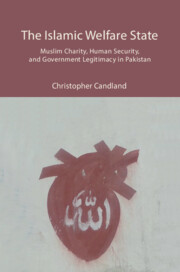Book contents
- Frontmatter
- Dedication
- Contents
- List of Illustrations
- Preface
- Note on Translations and Transliterations
- List of Abbreviations
- Part 1 Introduction
- Part 2 Piety and Public Goods
- Part 3 Pakistan
- Part 4 Charities
- Part 5 Religion, State, and Public Goods
- Afterword
- Acknowledgments
- Appendix: Charities Studied
- Glossary
- References
- Index
6 - Methods of Discovery
Published online by Cambridge University Press: 30 April 2024
- Frontmatter
- Dedication
- Contents
- List of Illustrations
- Preface
- Note on Translations and Transliterations
- List of Abbreviations
- Part 1 Introduction
- Part 2 Piety and Public Goods
- Part 3 Pakistan
- Part 4 Charities
- Part 5 Religion, State, and Public Goods
- Afterword
- Acknowledgments
- Appendix: Charities Studied
- Glossary
- References
- Index
Summary
A “disinterested” social science has never existed and, for logical reasons, can never exist.
—Gunnar MyrdalThe social world is complex, and it changes even as we try to understand it. How then do we make sturdy claims about social life? How do we know that the findings of our inquiries about social life are true? Our findings also have implications for ourselves, in how we assess our place in and impact on the world. But how do we prevent our findings from being self-serving? How can we be certain that our findings are not merely projections of our own biases and values?
This chapter discusses epistemological and methodological matters. How did I collect information? What is the quality of that information? And what methods of analysis did I use? How did others’ perceptions of my identity, as a long-haired, middle-aged, white-skinned (pink, actually) man with a Christian name from the United States of America, influence conversations and interactions and thereby my perspectives? How was the information that was provided, and not provided, by those with whom I interacted shaped by these identities? This chapter addresses these questions. To start, we enumerate the specific questions that persuaded me to do field research.
Faith and Charity
Why do people give charity? Why do some people give more than others? Why do some give charity through traditional religious institutions, such as langar (community kitchen), others through nonpartisan NGOs, such as the Indus Hospital or Edhi Foundation, and still others through the welfare associations of political parties, by donating the hides and skins of sacrificed cattle as a service to people giving qurbani (donated meat of sacrificed animals)?
How do Islamic social welfare associations collect and distribute infaq (spending to please God)? And how does that collection and distribution differ according to whether that association is based at a religious institution, is registered and independent of political parties, is affiliated with a political party, or is organized by government? Are some types of Islamic social welfare association better at reaching needy people without discrimination on the basis of ethnicity, religion, or sexual identity?
- Type
- Chapter
- Information
- The Islamic Welfare StateMuslim Charity, Human Security, and Government Legitimacy in Pakistan, pp. 111 - 125Publisher: Cambridge University PressPrint publication year: 2024



